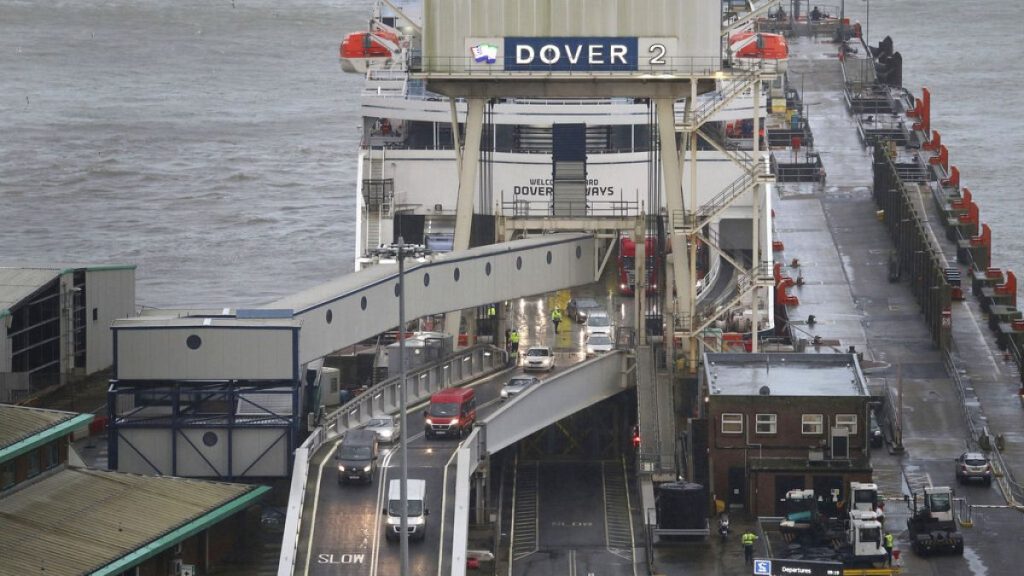The UK government is preparing for potential chaos surrounding the launch of the EU’s Entry-Exit system (EES) on October 6. This system will require travellers from non-EU countries, such as the UK, to have their fingerprints scanned and a photograph taken upon entering the bloc for the first time. The Port of Dover, a key transportation hub between the UK and France, is expected to face significant delays due to the implementation of the EES. To address potential difficulties, the UK government has announced a six-month soft launch for the EES to simplify the process and enable greater freedom of passage for vehicles in case of delays.
Minister Guy Opperman from the UK’s transport department explained the rationale behind the soft launch of the EES during a session at the House of Commons’ European Scrutiny Committee. He emphasized that the measures put in place during the soft launch period would help alleviate queues and complications that may arise due to the new border scheme. The Port of Dover is a crucial location in the implementation of the EES, as French border checks currently take place on UK soil before travellers embark on cross-Channel journeys. This unique arrangement adds an additional layer of complexity to the process, further underscoring the need for a smoother transition through the soft launch.
While the EES is set to introduce significant changes to border procedures, concerns have been raised about the readiness of the accompanying app that is intended to facilitate quicker processing for travellers. Home Office minister Tom Pursglove expressed doubts about the app being ready in time for the October launch, noting that the UK government has been pushing for its swift development to address potential challenges. The app-based solution is seen as a critical tool in streamlining the EES process and minimizing delays at border crossings. Despite uncertainties surrounding the app’s readiness, efforts are being made to ensure that it is implemented as quickly as possible to enhance the overall effectiveness of the EES.
The implications of the EES are far-reaching, with government agencies and representatives from the tourism industry anticipating long queues and delays for ferry traffic traveling between Dover and Calais. The need for precautionary flexibility measures to manage potential bottlenecks at border checkpoints has been recognized, prompting the decision to implement a soft launch of the EES. This phased approach aims to address challenges that may arise during the initial implementation of the new border scheme, providing a grace period for adjustments and improvements to be made. By allowing for greater freedom of passage of vehicles in case of delays, the UK government is proactively addressing concerns about the impending disruptions at key border crossings.
As the countdown to the EES launch continues, efforts are ongoing to mitigate the potential impact of the new border scheme on cross-border travel. The practical implications of implementing the EES at ports like Dover underscore the need for coordinated strategies to ensure a smooth transition and minimize disruptions in cross-Channel traffic. While uncertainties remain regarding the readiness of the app-based solution and the overall effectiveness of the EES, government ministers are actively engaging with EU counterparts to address key challenges and find solutions that enhance the efficiency of border processes. The soft launch of the EES signals a proactive approach by the UK government to manage uncertainties and prepare for potential chaos, underlining the importance of streamlined border procedures for maintaining the flow of international travel between the UK and the EU.











